HOMEDramafied Thinking Models Critical Thinking
Creative Thinking
Strategic Thinking
Symbolic Thinking Visual Learning Comics & Graphics
Videos & Film
Narrative Learning
Virtual LearningActive Learning Classrooms
Online & MOOC's
Virtual ImmersionInteractive Learning Mind Games
Games of Play
Writing Exercises
Self-Assessment Collaborative Learning
Peer Feedback
ESL Writing GroupsEdtech Industry Equity Partners
Procurement Into the FutureAbout the AuthorContact
- Interactive Learning
- Mind Games
- Games of Play
- Writing Exercises
- Self-Assessment
I tell you and you forget. I show you and you remember. I involve you and you understand. The concept of interactive content comes out of advances in digital technology. Simple forms of this experiential process of learning have proven effective for young learners. Training of Thought assumes that older learners also require interactive content and uses more complex forms such as brain teasers, rebuses, surveys and riddles. Serious games are becoming more prominent in education. Currently, their integration is similar to that of the early days of video and film -- an add-on that supplements the current pedagogy. However, eventually game engines will be as accessible as web-building tools to tailore games for specific purposes. Training of Thought looks forward to incorporating serious games and additional interactive content as the technology evolves. |
Learners are more invested in the process of learning when they are offered interactive content.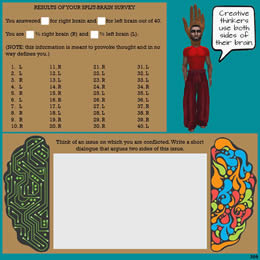
|
Do not keep children to their studies by compulsion but by play. Mind games ask learners to maximize their skills in observation to better understand their world, encouraging them to think about what they see and reflect on how they feel about what they see. Mind games connect what learners are learning to their everyday life. By practicing making connections, they develop thinking skills more effectively. Additionally, they are more able to see the effects and consequences of ineffective thinking. When learners share their observations with one another, they learn how different people perceive their world in diverse ways. This process encourages introspection and the ability to see and better accept differing points of view. Training of Thought offers mind games throughout the learning modules, along with opportunities to share their observations and perceptions with peers. |
Observation and perception are integral to expanding the knowledge base of learners.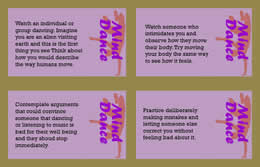
|
We’re not saying the whole curriculum turns into this big game. We’re saying it’s an adjunct to a serious curriculum. Regardless of game format, gamers increase their skills the more they play a game. Like physical training, mental training requires repetition so that thinking skills become thinking habits. When learners practice pushing their limits in gameplay, they are more willing to move past their comfort zone in thinking. Training of Thought capitalizes on this, helping learners translate their confidence in successful gameplay into performing more concrete thinking activities and writing exercises. Because the strategic thinking modules are based on game theory, learners will create their own games, most of which will focus on non-digital activities. Training of Thought embraces the integration of serious games not only as part of a curriculum, but as part of the pedagogy. |
The mind can be teased into thinking differently both verbally and visually.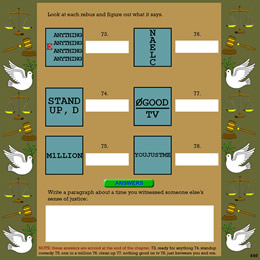
|
There is a glaring deficiency in reading and writing among new entrants in the American workforce, and that is troubling employers who are being forced to invest in additional training—or simply look for skilled workers offshore—for one of the most fundamental job skills in the 21st century economy. Most jobs require effective writing skills from academic treatises to simple reports. Thinking skills help learners develop the ability to communicate succinctly and effectively. Training of Thought focuses on writing effective essays and business plans as well as short narratives and dialogues. Learners are guided through what it takes to think through and plan written projects, Short written exercises give learners an opportunity to gather their thoughts for larger projects. Learners are instructed in academic standards and encouraged to discover their unique voice and style of writing. In this way they meet learning outcomes for coursework. |
Learning to write begins with learning how to express thoughts and feelings.
|
Learning outcomes are vital to instructional design. Quantifiable metrics are ideal in today's technological world, but alternative ways of grading the humanities are required, especially when writing is central to the curriculum. As learners enhance their thinkiing skills, they gain confidence in their abilities. Better thinking skills increace writing skills.Training of Thought provides confidence surveys for each thinking model to look at the learner's progress and development of skills. Self-assessments can help both the learner and the educator when designed appropriately. Learners gain perspective in assessing their progress; the educator can correlate the learner's perceptions with the progress of their work. In this way, educators can offer additional support for learners whose perceptions do not match the progress they are making. Training of Thought relies on educators to facilitate the learning process to assure learners progress through the modules effectively. |
Introspection and self-evaluation unto themselves are integral to developing thinking skills.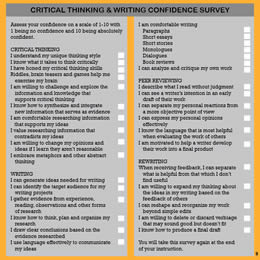
|
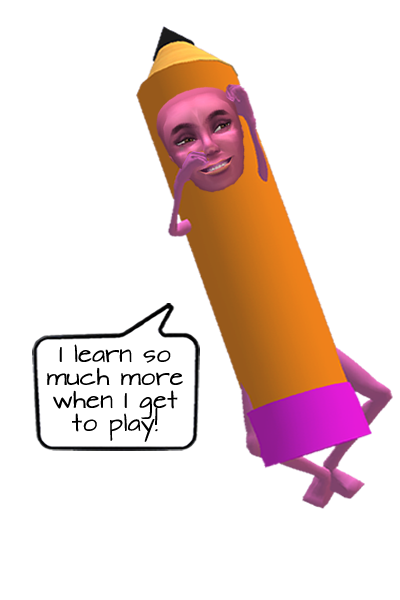
Visual Learning
Active Learning
Interactive Learning
Collaborative Learning
Edtech Industry
Into the Future
About the Author
Contact
